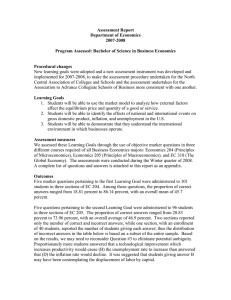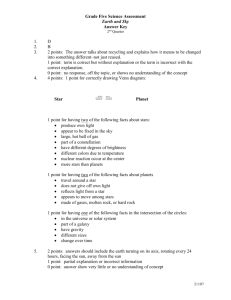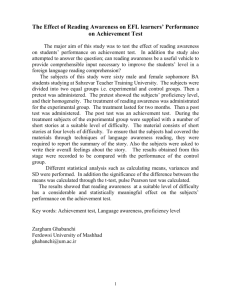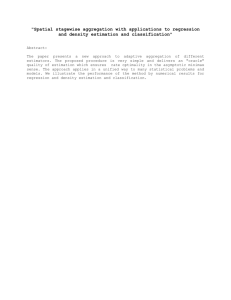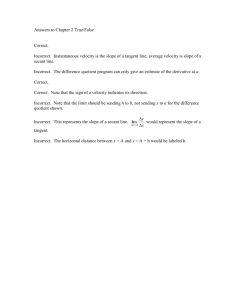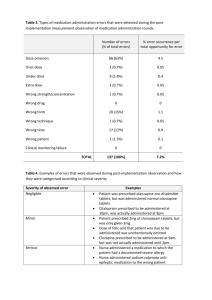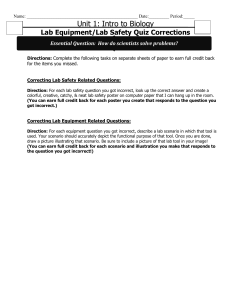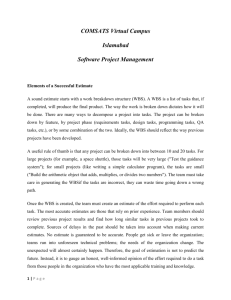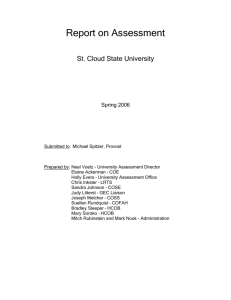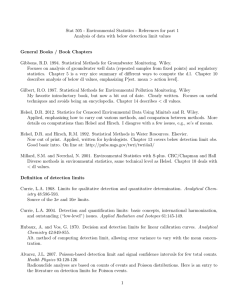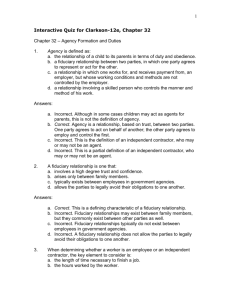Treatment of Not-Administered Items on Individually Administered
advertisement
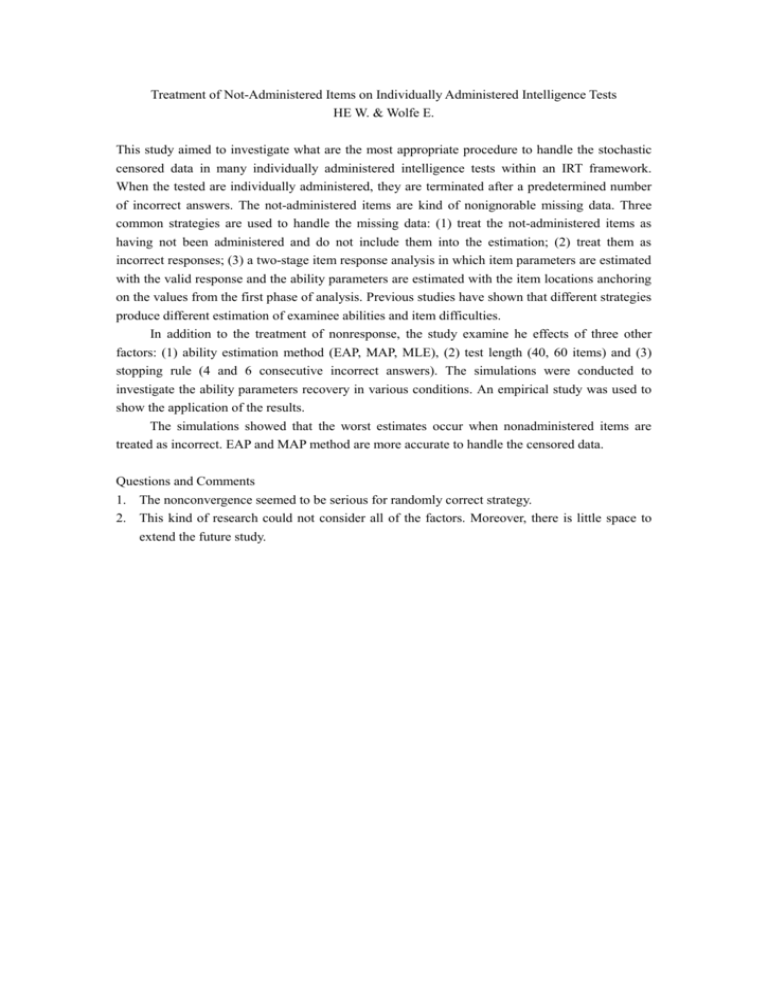
Treatment of Not-Administered Items on Individually Administered Intelligence Tests HE W. & Wolfe E. This study aimed to investigate what are the most appropriate procedure to handle the stochastic censored data in many individually administered intelligence tests within an IRT framework. When the tested are individually administered, they are terminated after a predetermined number of incorrect answers. The not-administered items are kind of nonignorable missing data. Three common strategies are used to handle the missing data: (1) treat the not-administered items as having not been administered and do not include them into the estimation; (2) treat them as incorrect responses; (3) a two-stage item response analysis in which item parameters are estimated with the valid response and the ability parameters are estimated with the item locations anchoring on the values from the first phase of analysis. Previous studies have shown that different strategies produce different estimation of examinee abilities and item difficulties. In addition to the treatment of nonresponse, the study examine he effects of three other factors: (1) ability estimation method (EAP, MAP, MLE), (2) test length (40, 60 items) and (3) stopping rule (4 and 6 consecutive incorrect answers). The simulations were conducted to investigate the ability parameters recovery in various conditions. An empirical study was used to show the application of the results. The simulations showed that the worst estimates occur when nonadministered items are treated as incorrect. EAP and MAP method are more accurate to handle the censored data. Questions and Comments 1. The nonconvergence seemed to be serious for randomly correct strategy. 2. This kind of research could not consider all of the factors. Moreover, there is little space to extend the future study.

